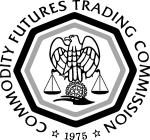
CFTC Whistleblower Alert: Blow the Whistle on Spoofing in the Commodities and Derivatives Markets
Under the Whistleblower Program of the Commodity Futures Trading Commission (CFTC), individuals can become eligible for both financial awards and certain protections by identifying Commodity Exchange Act (CEA) violations connected to spoofing.
What is spoofing?
A trader “spoofs” when he or she places an order in a futures market with the intention to cancel the order prior to execution. Traders typically spoof to misrepresent supply or demand in order to induce other traders to act in a way beneficial to the spoofer. Spoofing is a federal crime punishable by up to 10 years’ imprisonment per violation.
What types of misconduct should you be on the lookout for?
The CFTC has used its civil authority to charge individuals and companies with spoofing, as in In re Tower Research Capital LLC,, In re Merrill Lynch Commodities, Inc., In re Mohan, In re Gandhi, CFTC v. Zhao, In re Liew, CFTC v. Sarao, or In re Panther Energy Trading LLC and Coscia. The Commission is concerned with conduct such as:
- Manual and automated trading schemes that place and quickly cancel bids and offers in futures contracts in order to benefit other orders and/or positions
- Orders being quickly placed and canceled at or near the best bid or offer, especially if opposite-side orders are filled
- Multiple orders of the same size repeatedly and simultaneously being placed and canceled
- Any scheme designed to cause prices to artificially move
What can you do if you suspect misconduct?
You do not need to be a company “insider” (like trader or trading firm employee) to be a whistleblower. In fact, victims of fraud and other market participants who observe misconduct committed by others may be best situated to identify spoofing and qualify as whistleblowers. If you see something suspicious, you can
- Complete a Form TCR (Tip, Complaint, Referral) correctly and as completely as possible
- Provide details that are specific, credible, and timely
- Include as much information about the misconduct as possible, including the markets and contracts involved, precise timestamps, and Tag 50 identifiers
- Attach supporting documents or files to your Form TCR, as long as they are not protected by the attorney-client privilege – e.g., screen shots or video of the market activity
- Perform independent analysis of trading activity
- Supplement your Form TCR filing with any additional information via mail, fax, or email
About the CFTC
The mission of the CFTC is to promote the integrity, resilience, and vibrancy of the U.S. derivatives markets through sound regulation.
About the Whistleblower Program
The CFTC will pay 10%-30% monetary awards to persons who voluntarily provide us with original information on a Form TCR about violations of the CEA or its rules, if that information leads to a successful CFTC enforcement action resulting in more than $1 million in monetary sanctions. The program also affords confidentiality and anti‐retaliation protections.
For more information go to: www.whistleblower.gov
Whistleblower Office
Commodity Futures Trading Commission
1155 21st Street, NW
Washington, DC 20581
Hotline: 866.873.5675
This article was prepared by the Commodity Futures Trading Commission’s Whistleblower Office. This article is provided for general informational purposes only and does not provide legal or investment advice to any individual or entity. It is not intended to, does not, and may not be relied upon to create any rights, substantive or procedural, enforceable by any party in any matter, civil or criminal. Please consult with your own legal adviser before taking any action based on this information. Please note that the above list of relevant types of misconduct is not exhaustive.
January 2020
